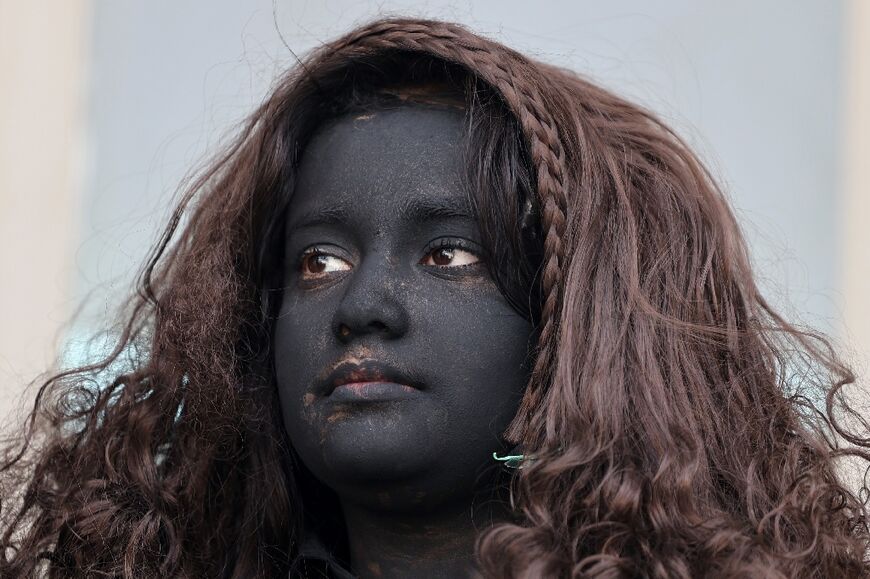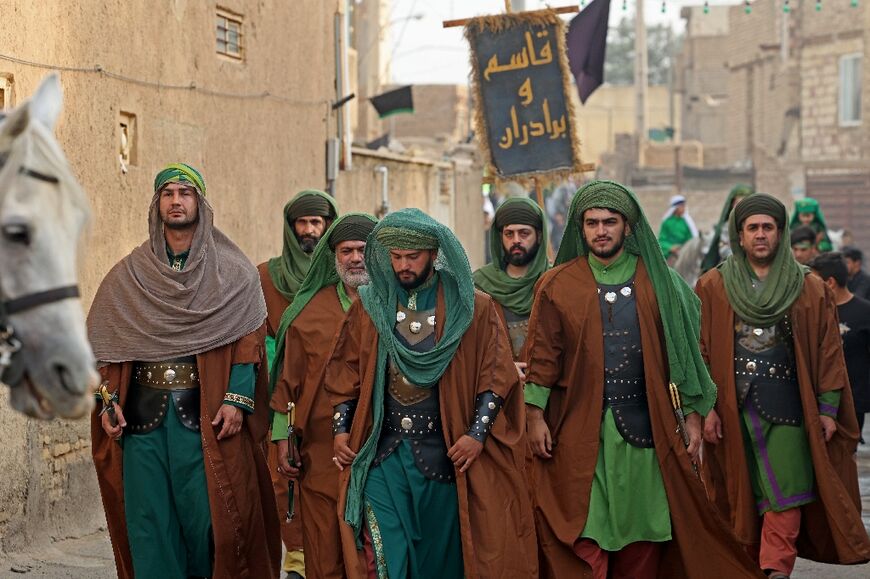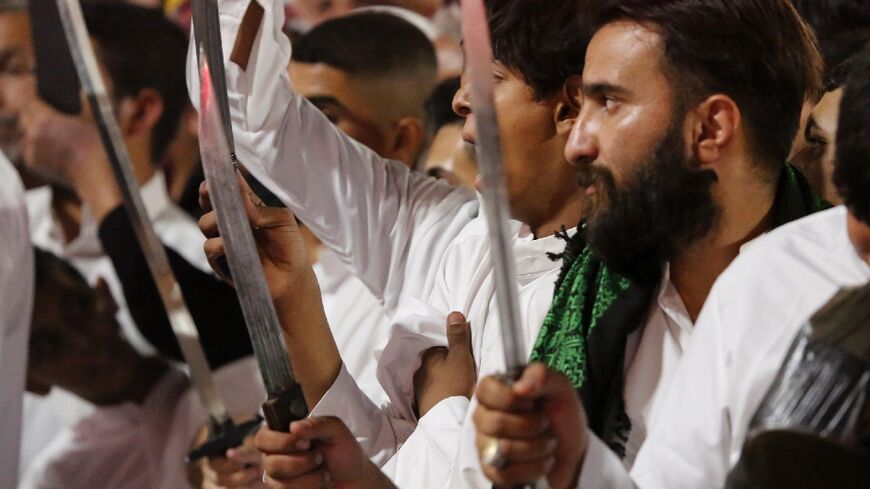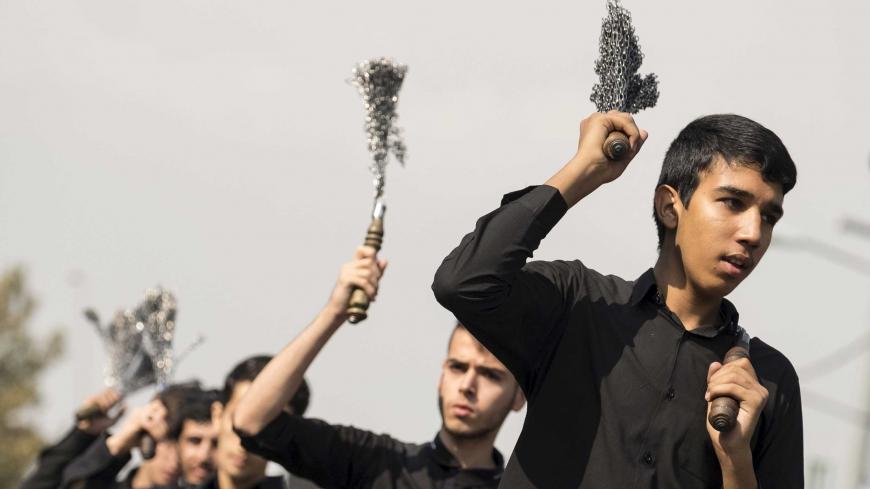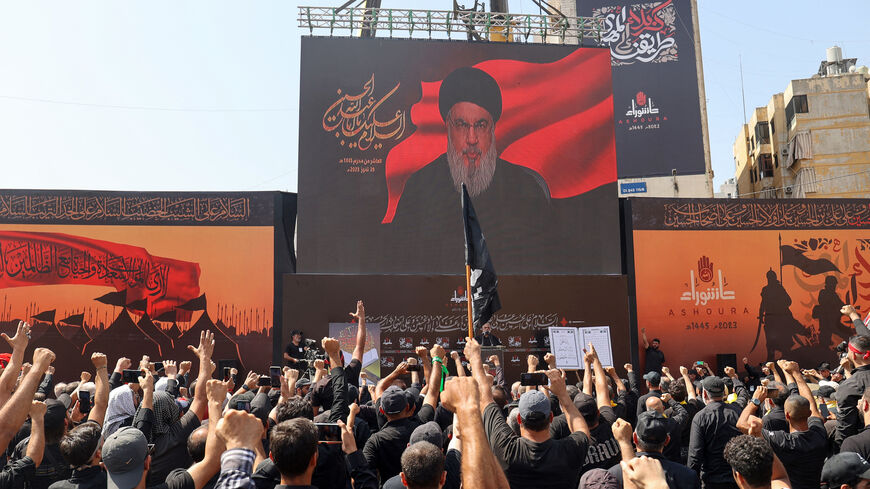Warriors and little jinn commemorate Ashura in Iran
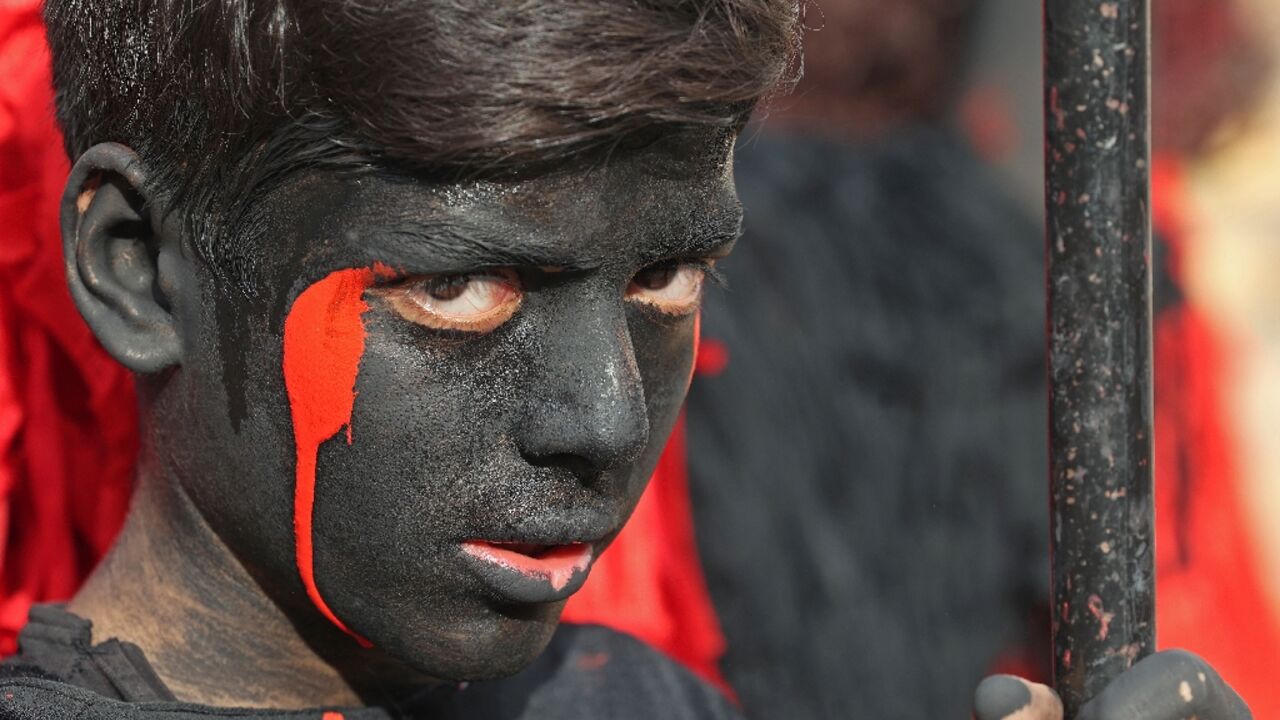
Once a year, in central Iran's city of Noosh Abad, men don warrior costumes and children portray supernatural beings to usher in one of the holiest commemorations in Shiite Islam.
Ashura falls on the tenth day of the Islamic month of Muharram, and commemorates the 7th century killing of Imam Hussein, a grandson of the Prophet Mohammed, during the battle of Karbala in modern-day Iraq.
In Noosh Abad, Iranian devotees stage a parade called the "Caravan", when they march through the streets two days ahead of Ashura.
On Wednesday, performers kept the tradition their city has marked for more than a century, wearing colourful embroidered costumes to signify Arab clothing worn at the time of Imam Hussein.
Some portrayed cavalrymen, daggers and swords at their belts, as children with their faces painted black or red played supernatural spirits or jinn, some wearing white and others with pink wings.
Tradition says that these djinn attended the battle at Karbala and offered to help Hussein, who refused, saying his destiny was to die on the battlefield.
"I've been taking part in this event for 10 years," said 56-year-old performer Ali Ebadi, who played the role of a slave to the "Shimr", the man who killed Hussein in the fight.
Hundreds of men in black clothes and chador-clad women watched as Wednesday's procession passed under black flags and banners bearing white inscriptions praising Hussein and his family.
The troupe later re-enacted events leading up to the killing of Hussein who rejected the right of the Caliph Yazid to rule the Islamic world.
Shiite Muslims the world over view Hussein's death as a symbol of the struggle against injustice.
Mourning his death can include dramatic rituals such as chest beating, head slapping and rolling in the mud.
Sometimes in other countries the rites see bloody self-flagellation or whipping using sharp-edged chains or swords.
Many "people believe that prophets, angels, and djinn came to help Imam Hussein" who refused their aid, saying "it was his destiny", 52-year-old Mohammad Mashhadi Noosh Abadi said at the procession.
It was all part of the Taazieh, or mourning, theatre rituals which some believe have roots that go back to ancient Persia, Noosh Abadi said.
In Noosh Abad, the "Caravan" parade and the Taazieh are essential for keeping the rituals alive.
"Generations learn from these rituals and performances which are a significant part of Islamic history," said Mahdi Moslem, professor of Islamic philosophy at Kashan university.




